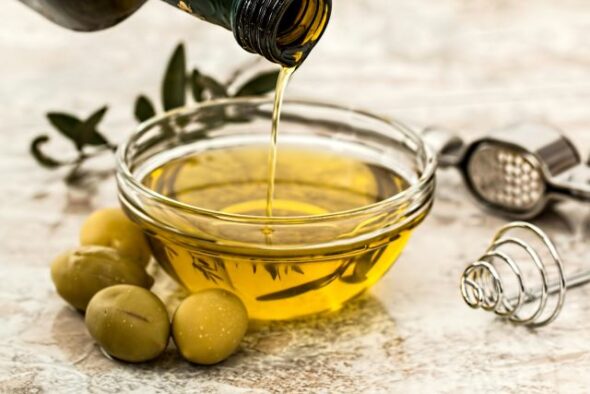11 Cancer-Fighting Foods to Reduce the Risk of Cancer

In the realm of health and nutrition, certain foods have gained recognition as cancer-fighting warriors. While no single food can single-handedly ward off cancer, incorporating a variety of nutrient-rich options into your diet can contribute to a holistic approach to cancer prevention. Cancer is a disease that doesn’t discriminate against those who develop it. Indeed, there are many types, including male breast cancer, testicular cancer, ovarian cancer, and bowel cancer. Fortunately, there are some foods available that could reduce the rise of developing some types of cancer.
Polyphenols, resveratrol, vitamin C, and other essential nutrients found in plant-based foods play crucial roles in supporting overall health and potentially reducing cancer risk. Let’s explore some of these cancer-fighting foods and the scientific evidence supporting their efficacy.
1. Apples
The adage “an apple a day keeps the doctor away” may hold more truth than meets the eye. Apples are rich in polyphenols, which exhibit promising anticancer properties. Studies suggest that apple polyphenols may inhibit the growth of cancer cells, particularly in breast cancer.
2. Berries
Berries, such as bilberries and lingonberries, boast a treasure trove of vitamins, minerals, and antioxidants. Research indicates that these tiny powerhouses may inhibit tumor formation and modify the immune system to help delay cancer development.
3. Cruciferous Vegetables
Broccoli, cauliflower, and kale are among the cruciferous vegetables known for their cancer-fighting potential. Sulforaphane, a compound found in these veggies, has shown significant inhibitory effects on cancer cell growth, particularly in colon and breast cancers.
4. Carrots
The humble carrot packs a punch when it comes to cancer prevention. High in beta-carotene and other antioxidants, carrots have been linked to a reduced risk of colorectal, lung, pancreatic, and leukemia cancers.
5. Fatty Fish
Omega-3 fatty acids found in fatty fish like salmon and mackerel offer protective benefits against breast and colorectal cancers. Incorporating these nutrient-rich fish into your diet may help lower your risk of developing these malignancies.
6. Walnuts
Walnuts, rich in pedunculagin and urolithins, have garnered attention for their potential role in preventing breast cancer. Studies have shown promising results, suggesting that walnut consumption may lead to genetic changes indicative of suppressed cancerous cell growth.
7. Legumes
Beans, peas, and lentils are not only high in fiber but also associated with a reduced risk of breast cancer. Incorporating legumes into your meals may confer protective benefits against this prevalent cancer type.
8. Grapes
Resveratrol, a potent antioxidant found in red grape skins, shows promise in fighting cancer. Additionally, grapes contain a host of other nutrients with antioxidant properties, further bolstering their cancer-fighting potential.
9. Whole Grains
Whole grains, such as brown rice and quinoa, offer a plethora of health benefits, including a lower risk of various cancers. Research suggests that regular consumption of whole grains may reduce the risk of colorectal, esophageal, gastric, and pancreatic cancers.
10. Dark Chocolate
Indulging in dark chocolate isn’t just a guilty pleasure—it may also confer cancer-preventive effects. Packed with polyphenols and flavonoids, dark chocolate has been associated with a lower risk of cancer-related mortality.
11. Olive Oil
Incorporating olive oil into your diet may offer protection against gastrointestinal, breast, urinary tract, and upper aerodigestive cancers. Studies suggest that consuming two or more tablespoons of olive oil daily can maximize its cancer-preventive benefits.
Incorporating these cancer-fighting foods into your diet, along with maintaining a healthy lifestyle and regular exercise, can significantly reduce your risk of developing cancer. While food alone cannot guarantee immunity against this complex disease, adopting a balanced diet rich in nutrient-dense foods is a proactive step towards safeguarding your health and well-being.
- Restaurant Germs: Improving Cleaning Practices For Commonly Contaminated Surfaces - April 15, 2024
- 11 Cancer-Fighting Foods to Reduce the Risk of Cancer - March 18, 2024
- Safety and Aesthetics: Tips for Landscaping Around Your Wellhead - February 20, 2024
